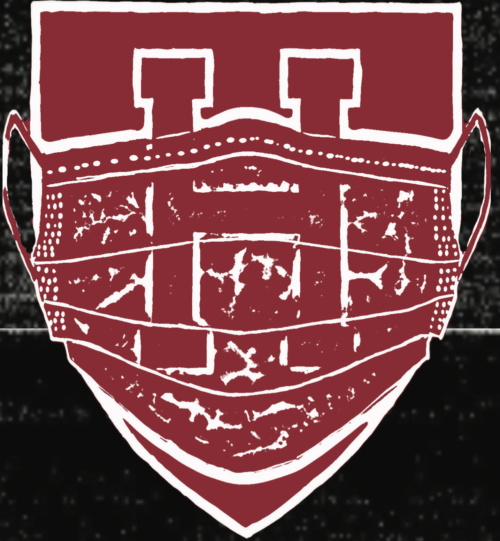The Ivy League’s recent decision to cancel spring sports has doused the hopes of student-athletes, who have now been unable to compete for four athletics seasons due to the coronavirus pandemic. COVID-19 continues to be a potent disruptor in the lives of student-athletes.
The gathering, sweating, and physical contact inherent to athletic competition certainly are potentially dangerous vectors of disease. However, the prevalence of COVID-19 is presently diminishing across the country. “The seven-day average of new cases in the United States has fallen by 74 percent since their January peak, hospitalizations have gone done by 58 percent, and deaths have dropped by 42 percent,” writes Alexis Madrigal for The Atlantic.
In addition to the declining threat of catching the disease, the centrality of college sports in the lives of student-athletes makes the Ivy League’s decision distinctly unfair. Practices and competitions are not merely secondary activities; many individuals commit to attending Harvard, for example, precisely because of Harvard’s athletic opportunities. Additionally, many student-athletes train and practice for substantial periods of time in preparation for athletic competition. The Ivy League’s cancellation of the spring season has disempowered athletes from reaping the fruits of their labor.
“As a college athlete, you put all this time in during the off-season in the weight room […] to get better. It’s really frustrating to not be able to play games and see all the hard work pay off,” said Jake Berger ’24, a shortstop on Harvard’s baseball team, who still hopes to compete in the spring.
Despite its disappointing nature, the absence of a spring season was expected by some student-athletes. “I didn’t come to campus in the fall or the spring with any expectations of competition,” said Maia Ramsden ’24, an athlete on Harvard’s Track & Field Team.
While the decision may not have been surprising, it represents a profound and unfortunate continuation of COVID-19-related impediments for college students. The pandemic has radically transformed the college experiences of millions of athletes and nonathletes alike. Harvard students have had particularly unique college experiences stained with stringent social-distancing guidelines. First-years on campus in the fall, for instance, were not allowed to socialize indoors.
These restrictions posed significant challenges for Harvard seniors, who were not invited to campus in the fall. The class lost their hopes for a cohesive and exhilarating final year socializing together in Cambridge. For seniors who represent Harvard as student-athletes, the Ivy League’s decision compounds their COVID-19-related disappointments and further diminishes the vibrancy of a pivotal year in their college experience.
“I especially sympathize with the seniors,” said first-year Jaeschel Acheampong ’24, another member of the Track & Field Team, regarding the loss of spring sports. “Last season ended abruptly, and it must be extremely tough for them not to have a season now. To be honest, the plan is to go crazy [with training now] so that the next time we compete it’s like we never left.”
This decision has, of course, affected those at other colleges as well. Student-athletes across the Ivy League are grappling with the absence of their seasons. “I was extremely disappointed about the cancellation,” said squash player William Ezratty, a sophomore at Princeton. “Many of my friends on the Squash team are concerned about maintaining their skills without having a season.”
While detracting from the experiences of student-athletes, the communal void of sports affects non-athletes, too. Indeed, many non-athletes enjoy viewing athletic competitions that feature their classmates. “Being able to watch sporting events on campus with classmates adds to the sense of community so pivotal to Harvard’s culture. It’s a shame that our students, especially first-years, lost the chance to be a part of the athletic traditions that bring our school together,” said Bryce Hilton ’24. At their core, sports are about uniting teammates and bridging the gap between spectators and competitors.
While the risks of COVID-19 merit overwhelming caution—and while the pandemic is still very much a part of current life—the abandonment of spring sports represents an overstep. The Ivy League must take public health guidelines seriously, but cancellations of athletic events chip away at the experiences of student-athletes and the very fabric of campus communities.
Will Goldsmith ’24 (willgoldsmith@college.harvard.edu) writes Sports for the Independent.

